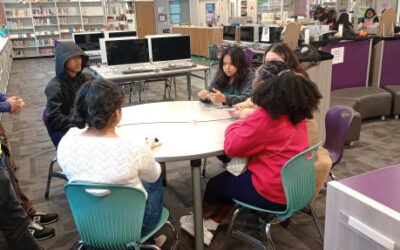FAQ
Frequently asked questions
Find helpful resources and solutions for your questions about resolution mediation
FAQ
Is the Dispute Resolution Center part of the King County government?
No. The DRC is a separate, independent non-profit organization serving King County, Washington. The DRC gets some funding through King County District Courts but is not a program of the county government.
Is the DRC part of the court system?
No. The DRC is a separate, independent non-profit organization but has mediators in all the Small Claims Courts in King County so that disputants can choose mediation on their court hearing day.
Can the DRC change my court date?
If you and the other party both agree that you would like to postpone your court date in order to give you time to mediate, we can have you sign a request, which we will send to the court, asking for a continuance (postponement to a later date). If you wish to change your court date for any other reason, you will need to contact the clerk of the small claims court in which your case was filed. The clerk can tell you how to proceed. Look for the court contact information on your court papers.
Can the DRC still help if one of the parties lives outside King County?
We may be able to help you if your dispute is a very simple one that can be resolved over the phone. If your dispute would need to be resolved with face-to-face mediation, the out-of-town party or parties would need to come to King County.
Are there dispute resolution centers outside King County?
Yes. There are 19 other Dispute Resolution Centers in Washington State, all of which can be found on this website: Resolution Washington. The DRC is also a member of the National Association for Community Mediation, which has contact information for over 550 dispute resolution centers around the country and beyond.
Does the DRC give legal advice?
No, we’re not acting as lawyers and can’t give legal advice. If you need legal advice, we can refer you to an attorney or you can contact the King County Bar Association which offers free legal guidance through neighborhood legal clinics, free legal representation for qualified applicants, and referrals to highly qualified attorneys for a small administrative fee.
Is mediation the same as arbitration?
No. In arbitration, the arbitrator listens to both parties and then makes a ruling, like a judge. In mediation, the mediator helps the parties create an agreement that works well for both of them, and the mediator doesn’t make any ruling or decisions for the parties.
Is a mediated settlement legally binding?
Signed written agreements can be used in court as evidence of a contract between the parties.
What if the other party doesn’t stick to the agreement we made through mediation?
If an agreement breaks down, you have a few choices. You can talk with the person directly and renegotiate your agreement; you can call us and have us help with renegotiation; or you can go to court and ask the judge to enforce the agreement.
My dispute involves a sensitive issue. Is mediation confidential?
Yes. Mediations by a dispute resolution center are confidential as provided by Washington State law (RCW 7.75). The mediation conversation is private and confidential but the signed written agreement that results from a mediation can be used as evidence in court. An exception to confidentiality exists however, if the mediator hears threats of violence or information about abuse of a vulnerable person. A mediator is required to report this information to the DRC’s Executive Director who may make a report to Child Protective Services, Adult Protective Services, or law enforcement.
What if the other party in the dispute won’t agree to mediate?
Mediation is voluntary, so all parties must be willing to mediate. The DRC can’t force anyone to mediate. However, if the other party in your dispute isn’t interested in mediation our Case Managers may be able to help you think through the alternatives and clarify the pros and cons of different choices so that you can make informed decisions about how to handle your dispute.
Are DRC mediators lawyers?
Not necessarily. Some of our mediators are lawyers, but a legal background is not necessary for the facilitative style of mediation. Facilitative mediators do not advise clients but, instead, facilitate a safe, balanced, fair, and respectful process to help clients find agreements that work.
What is the DRC website privacy policy?
Our privacy policy is here.
Events News
Property Tax Exemption King County: HOMES Program Helps Residents Apply
Starting in May 2025, a powerful new resource is available to help eligible residents apply for the property tax exemption King County offers. The HOMES program—short for Homeowners’ Outreach, Mentoring, and Education Services—supports older adults, veterans, and...
Peer Mediation in Action: From Conflict to Connection
Empowering Youth Through Peer Mediation: A Year in Review We take a moment to celebrate the incredible progress of our Peer Mediation program and reflect on the positive impact it has had on students, staff, and the broader school community. This year, we have seen an...
Mediation Strengthens Communities
Conflict as a Path to Understanding Conflict is a natural part of human interaction, but it doesn’t have to create lasting division. With the right approach, disputes can become opportunities for understanding, healing, and growth. At the Dispute Resolution Center of...




